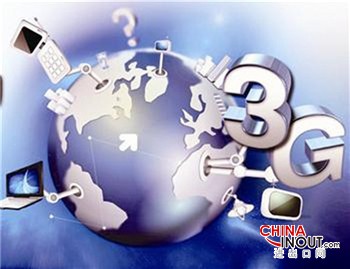70年前,联合国的建立表明,人类做出了一个简单的选择:合作而非战争。全人类应该团结起来,应对冲突、贫穷和疾病。世界上所有人的声音都应被听到。
至少,那时是这样计划的。
我们一路走来取得了极大的进展。我们遏制和扭转了致命疾病的传播,延长了预期寿命,提高了收入水平。我们甚至将自己从一些全球性冲突和灾难的边缘拉了回来。但是人类的进步并不均衡。成功的故事主要在城市、在北半球,而太多的人被遗忘在这些成功故事之外。
目睹这些现象,世界各国领导人上周在纽约提出了一系列新的全球目标。如果我们希望构建一个不仅让一部分人,而是让全体人都可以生活在安全与繁荣中的世界,我们仍有很多工作要做。联合国成员国签署的《2030年可持续发展议程》就体现了这一点。
议程中列出17项总体目标和169项具体目标。我们相信其中一项目标,即编号9(c)的目标,对促成其他所有目标的实现是至关重要的:承诺到2020年,让全世界所有人接入互联网。
今天,我们这个星球上超过半数的人无法接入网络。这对任何人来说都不是好事——对那些处于劣势、未能连入网络的人并非好事,对另外一半也一样,因为后者的利益和安全都依托于社会的稳定。
从穆·易卜拉欣(Mo Ibrahim)到比尔和梅琳达·盖茨(Bill and Melinda Gates),从“行动/2015”(action/2015)到“见证者”(Ushahidi),再到“撒哈拉记者”(Sahara Reporters),一系列科技界人士和活动人士史无前例地联合起来,支持一项全球“互连宣言”。他们承诺会支持新的全球目标,让全世界与机遇相连。这需要成为一项全球性的运动。
这个世纪,全球发展与全球网络互联是密切相关的。想要协助世界各地的人得到饱足、医疗、教育并自力更生,我们也需要让全世界接入网络。互联网不应该像今天这样,只属于30亿人口。它应该被视为发展的必需品,一个用来成就更远大目标的工具。
以埃塞俄比亚和坦桑尼亚为例,当地的农民可利用网络争取较高的售价、追踪库存、通过移动设备支付保险费用,以防天有不测风云。尼日利亚公民可以利用BudgIT这个手机app,来监督政府是否遵守承诺运用开支。对女性来说这尤其是个大好机会。虽然男性连线上网的机会要多得多,不过如果女性也能使用网络,她们就能借助科技手段,寻求更好的教育、健康、经济地位与人身安全。危地马拉的准妈妈能使用手机学习如何在孕期保持健康。而在肯尼亚,借助M-Pesa这个出色的微型贷款计划,妇女们能够通过手机获得金融服务。
过去几周,我们看到许多难民铤而走险,在欧洲边境寻求庇护。智能手机使得那些留在当地的难民,得以与跨过了检查站和铁丝网的亲人保持连系。网络使全世界人,共同为一个死在土耳其海滩上的叙利亚男童哀悼,使他成为了每位难民的共同象征。社交网络不只传递了信息,同时也促成了公众意见与公共政策的改变。
然而用网络连结全世界说来容易,做起来难。
并不存在简便的解决方案,或者一蹴而就的技术工具。
在许多地方,想普及网络连接,得先从普及能源供应开始着手。非洲农村地区的民众十分之九没有电力可用,政府当局可以在这个方面带来改变。这就是我们为什么要支持奥巴马总统提出的“电力非洲计划”(Power Africa)、两党在国会共同提出的《非洲电气化法案》(Electrify Africa Act),以及非洲开发银行(African Development Bank)对可再生能源的投资。
政府打下基础之后,私营部门就能继续建设。我们为缩小数字鸿沟所付出的努力前景可期。不过我们也很清楚,世界各国可以也应该作出更多贡献,而这是刻不容缓的。英特尔基金会(Intel Foundation)为理工和数学教育所做的工作,微软利用科技推进千年发展目标(Millennium Development Goals)的努力,以及谷歌为偏远地区提供网络接入的热气球计划(Project Loon),都显示出科技巨头将此视为当务之急。Facebook旗下的Internet.org也为应对挑战做出了贡献。
需要有更多科技公司与企业家承担起更多责任。硅谷不只应该关注自身,还应该采取更多行动,应对教育、医疗及难民危机等议题。我们想对科技产业提出挑战,替那些最边缘化、为贫穷所困,还有那些网络所不能及的人群,付出更大努力。
所有的全球目标都必须达成,然而让世界各地的所有人都接入互联网的目标,肯定能加速这场并非儿戏的赛跑。“加速”理当成为我们的行动方针。(中国进出口网)

SEVENTY years ago, the United Nations was formed as the expression of a simple choice: cooperation instead of war. Humanity would stand as one against conflict, poverty and disease. All the world’s voices would be heard.
At least, that was the plan.
We’ve come a long way. We’ve halted and reversed the spread of killer diseases, extended life expectancy and raised incomes. We’ve even walked ourselves back from the edge of some global conflicts and catastrophes. But progress has not been evenly distributed. Too many people have been left outside of a mostly urban, mostly Northern success story.
Seeing that, world leaders put forth a new set of global goals in New York last week. If we want to build a world wher not just some but all get to live in security and prosperity, there’s a lot still to do, as the 2030 Agenda for Sustainable Development signed off on by United Nations member states shows.
It lists 17 goals and 169 targets, and one of these, 9(c), is a target that we believe is crucial to accelerate realization of all the others: a commitment to provide Internet connectivity for all by 2020.
Today over half the people on this planet don’t have access. That is not good for anyone — not for the disempowered and disconnected, and not for the other half, whose commerce and security depend on having stable societies.
An unprecedented array of technologists and activists — from Mo Ibrahim to Bill and Melinda Gates, action/2015, Ushahidi and Sahara Reporters have come together to support a global Connectivity Declaration, pledging their support for the new global goals and connecting the world to opportunity. This needs to become a global movement.
In this century, global development and global connectivity are closely linked. If you want to help people feed, heal, educate and employ themselves around the world, we need to connect the world as well. The Internet should not belong to only three billion people, as it does today. It should be seen as a necessity for development, and a tool that makes larger things possible.
In Ethiopia and Tanzania, for example, farmers connect to get better prices, track inventory and make mobile insurance payments in case of bad weather. In Nigeria, citizens use BudgIT, a mobile app, to assess whether governments keep their spending promises. The opportunity is especially great for women. Men have significantly more access to the web, but when women get connected, they use technology as a pathway to better education, health, economic status and security. In Guatemala, cellphones inform mothers how to have healthy pregnancies. In Kenya, women receive financial services via their cellphones thanks to the brilliant M-Pesa microfinance scheme.
In the last few weeks, we’ve watched desperate refugees seek shelter on the frontiers of Europe. Smartphones have made it possible for those left behind to communicate with loved ones across checkpoints and razor wire. The Internet connected our world in shared grief as a Syrian child’s death on a beach in Turkey came to symbolize every refugee. Social media carried the message and changed not just popular opinion but public policy.
It’s one thing to say we should connect the world. The real trick is how.
There’s no simple solution or silicon bullet.
In many places, increasing connectivity will have to start with extending access to energy. Nine out of 10 rural Africans don’t have electricity. Governments can make the difference. This is why we support initiatives like President Obama’s Power Africa plan and the bipartisan Electrify Africa Act in Congress, as well as the African Development Bank’s investments in renewable energy.
wher governments lay the foundation, the private sector can build. Promising efforts are underway to bridge the digital divide. But we know the global community can, and must, do more — and urgently. The Intel Foundation’s work in STEM education, Microsoft’s use of technology to advance the Millennium Development Goals and Google’s Project Loon to connect remote locations illustrate how technology leaders are prioritizing this effort, as is Internet.org, Facebook’s contribution to meeting the challenge.
More technology companies and entrepreneurs must take more responsibility. Silicon Valley should look beyond itself and act more on issues like education, health care and the refugee crisis. We challenge the tech industry to do far more for those most marginalized, those trapped in poverty, and those beyond or on the edge of the network.
All the global goals must be scored — but the goal of connectivity for everyone everywher will surely hurry this game-that’s-not-a-game to its successful conclusion. Hurry being the operative word here.











